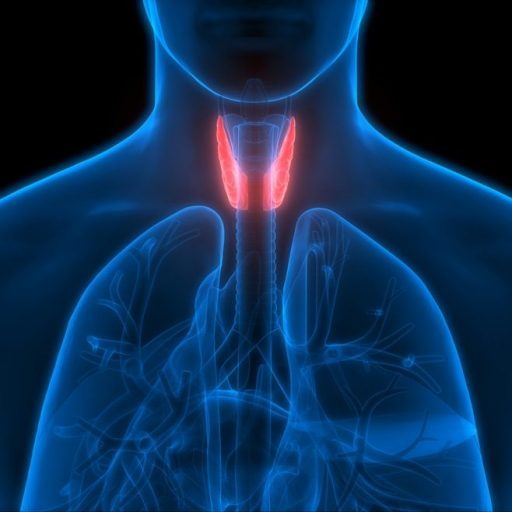Table of Contents
ToggleIntroduction to Levothyroxine
Levothyroxine, a synthetic thyroid hormone, is essential for managing hypothyroidism. It compensates for the thyroid’s inability to produce sufficient hormones, crucial for regulating metabolism and energy.
What is Levothyroxine?
Levothyroxine, available by prescription, replaces the thyroid hormone thyroxine. It’s vital for those with an underactive thyroid, helping control energy levels and growth.
Key Facts
- Levothyroxine is a synthetic version of thyroxine.
- It starts working immediately, but symptom improvement may take weeks.
- Dosage adjustments are common, based on blood tests.
- It’s essential during pregnancy for maternal and fetal health.
Who Can Take Levothyroxine?
Most adults and children can use levothyroxine, but it’s unsuitable for some. Consult your doctor if you have:
- Allergic reactions to levothyroxine.
- Overactive thyroid or adrenal gland issues.
- Heart problems or high blood pressure.
- Diabetes, as it may affect blood sugar levels.
How to Take Levothyroxine
- Take it once daily, ideally 30 minutes before breakfast.
- Avoid food and caffeine when taking it to ensure proper absorption.
- Dosage varies; follow your doctor’s instructions.
Side Effects of Levothyroxine
While side effects can occur, they often result from incorrect dosages. Common side effects include:
- Nausea, vomiting, diarrhea.
- Headaches, restlessness, sleep issues.
- Flushing, sweating, muscle cramps.
- Hand tremors.
Serious Side Effects
Rare but serious effects include:
- Fast or irregular heartbeats.
- Chest pain.
- Serious allergic reactions, requiring immediate medical attention.
Managing Side Effects
- Adjusting the dosage often resolves side effects.
- Report any persistent or bothersome symptoms to your doctor.
Pregnancy and Breastfeeding Considerations
Levothyroxine is safe during pregnancy and breastfeeding. However, dosage adjustments are often necessary.
Interactions with Other Medicines
Levothyroxine can interact with various drugs, including:
- Epilepsy medications.
- Certain antibiotics and heart medicines.
- Hormone therapies.
- Some diabetes and blood clot prevention medications.
Herbal Remedies and Supplements
- Biotin supplements can interfere with thyroid tests.
- Avoid kelp supplements due to high iodine content.
Conclusion
Levothyroxine is a crucial medication for managing hypothyroidism. Proper dosage, awareness of side effects, and understanding interactions ensure its effectiveness and safety. Regular monitoring and consultation with healthcare providers are key to successful treatment.
The references below provide authoritative and detailed information on Levothyroxine, suitable for readers seeking further knowledge on this medication.
- Mayo Clinic – Levothyroxine (Oral Route) Side Effects
- Mayo Clinic provides detailed information on the side effects of Levothyroxine, an oral medication used for thyroid hormone replacement. This resource outlines both common and rare side effects, ensuring patients are well-informed about potential reactions.
- MedlinePlus – Levothyroxine Drug Information
- MedlinePlus offers comprehensive information on Levothyroxine, including its usage, dosage, and precautions. This government resource provides valuable insights into the medication’s prescribed purposes and potential side effects, contributing to patient education and safety.






